Why Do Female Cats Attack Males After Mating? (The Truth)
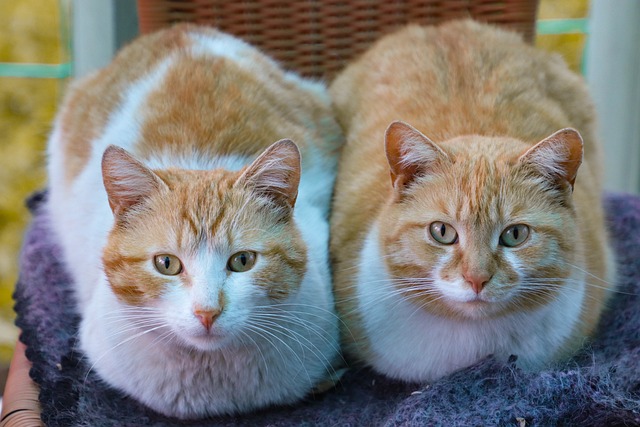
Picture this:
You're a concerned cat owner, witnessing a bizarre post-mating drama between your feline companions.
An innocent act turns into a battlefield, leaving you puzzled and worried about their safety. 🐾
But fear not!
Let's delve into the wild world of feline behavior together.
Let's begin.
Strategies to Manage Female Cat Aggression After Mating
You can take better care of your female cat after mating by understanding this natural phenomenon.
After mating, your female cat may become aggressive towards males in order to make them go away and potentially mate with another male.
But don't worry, there are strategies you can use to manage this aggression and keep your feline friend healthy and happy.
One important strategy is to provide a separate space for your female cat where she can relax and calm down after mating.
Just ensure this space is safe and cozy for her.
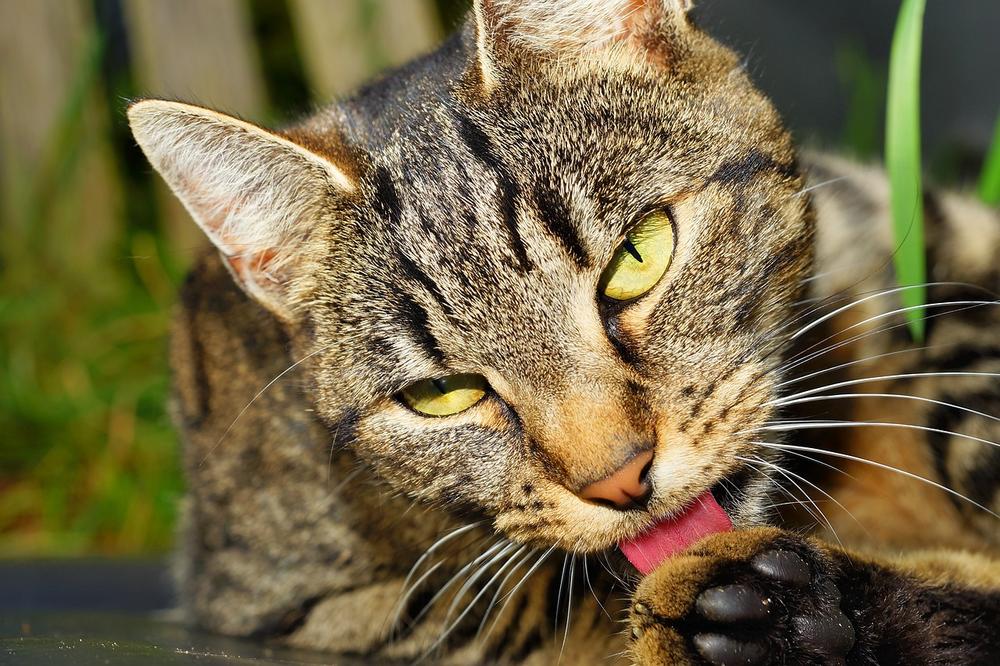
If you're worried about her aggressive behavior, you can try separating the cats using distractions like whistles or loud clapping.
This will redirect their attention and diffuse any tension between them.
And lest we forget, neutering is the most effective way to stop mating-related behaviors in cats.
Not only does it prevent unwanted pregnancies, but it also helps reduce aggression.
To ensure a healthy routine for your cats, follow a step-by-step guide for post-mating care.
This includes providing proper nutrition, regular grooming, and veterinary check-ups.
By understanding and implementing these strategies, you can ensure the well-being of your female cat after mating and maintain a harmonious living environment for all your furry friends. After all, they deserve the best care possible!
Main points I'll expand upon further down this article:
- Female cats display various instincts and behaviors related to their reproductive cycle.
- Female cats often attack males instinctively after mating to protect their offspring.
- Female cats become aggressive and unfriendly towards males due to innate instincts.
- Queens can start breeding as early as four months of age.
- Cats mate for reproduction, not for romance or pleasure.
- Hormonal changes and the removal of the penis contribute to the queen's aggression.
- Female cats may exhibit aggression due to discomfort or potential health issues.
- Male cat behavior during and after mating is essential for successful reproduction.
- Mating is a brief affair accompanied by loud screams from both cats.
- Aggressive behavior by males serves as a mating strategy.
Female Cat Instincts and Maternal Protection
Female cats instinctively attack males after mating to safeguard their kittens. This behavior is driven by their innate need to protect their offspring, ensuring a safe environment for them. Understanding their heat cycle and providing a comfortable birthing space is crucial during this time.
Female cats, they have these strong instincts when it comes to mating and protecting their young.
But after mating, they may attack males.
Don't worry, it's not personal!
It's just their natural drive to protect their babies. It's like a built-in mama bear instinct.
So why do they attack males?
Easy, it's all about keeping those precious kittens safe.
Attacking males is their way of ensuring the safety of their babies.
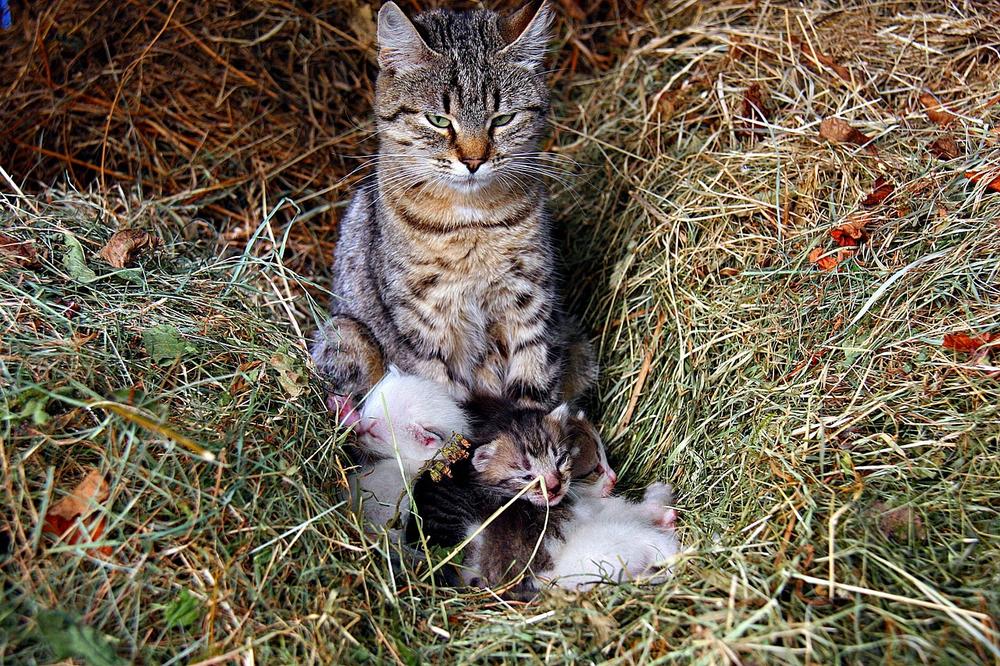
And this behavior isn't unique to domestic cats, it's seen in other wild feline species too.
It's nature's way of giving those little ones a fighting chance. When you think about it, it makes sense.
Female cats want a safe environment for their offspring. So if your female cat suddenly gets aggressive towards males after mating, don't freak out. It's just her natural instincts kicking in.
They can start breeding as early as four months old, so you must understand their heat cycle and support them during this time. Make sure she has a cozy area to give birth and care for her kittens.
And don't you forget, every cat is unique, so if you're worried about your cat's behavior, talk to a vet.
And when it comes to understanding the fascinating behaviors of female cats, there's one question that might be lingering in your mind: Why do female cats roll around after mating? Curious to find out? Well, you're in luck because I've got just the answer for you.
If you want to delve deeper into this intriguing topic, I highly recommend checking out my article Why Do Female Cats Roll Around After Mating.
Inside, you'll uncover the secrets behind this peculiar behavior and gain a better understanding of our feline friends.
So, go ahead and satisfy your curiosity—I promise you won't be disappointed.
Social Dynamics and Competition Among Cats
I'm telling you, getting cats to coexist peacefully is not as easy as it sounds.
Cats are just like us, they have their own personal bubble that they don't want invaded.
So, ensure each cat has their own vertical space.
You know, like those cool cat trees or shelves?
That way, they can stake out their territory without stepping on each other's toes.
But let's focus on the ladies for a moment.
Female cats can be quite choosy about who they hang around with.
Some males meet their standards, while others...
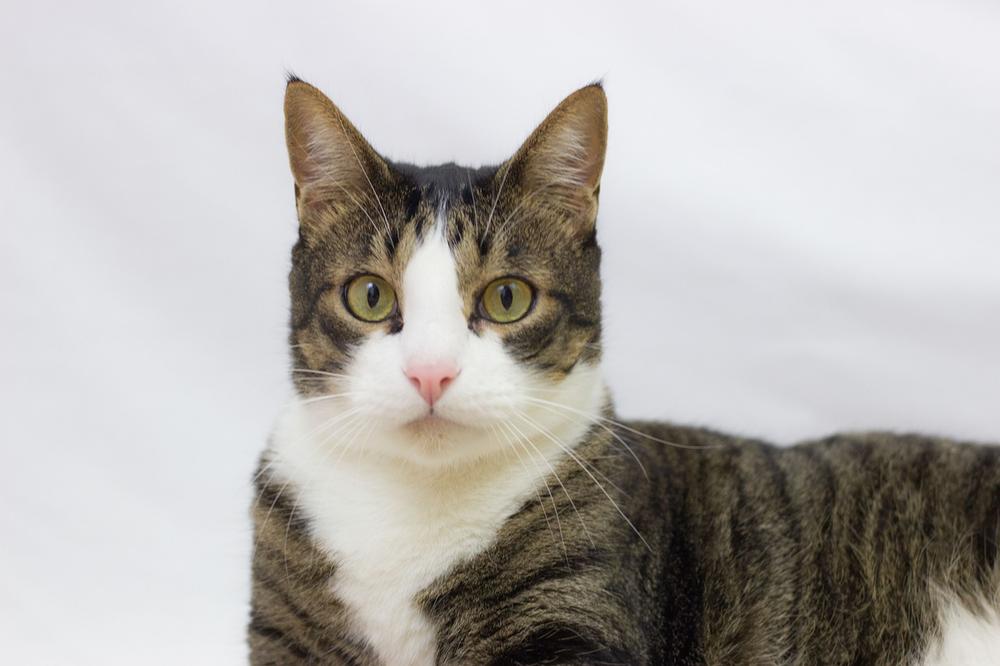
Well, let's just say they don't make the cut.
If a female cat is already familiar with a male, her animosity towards him tends to diminish.
However, don't be surprised if even after hooking up, they still throw a fit and act all hissy.
It's all about pride, my friend. Cats have a lot of it.
Trust me when I say this, cats are complicated creatures.
Forging a peaceful community might require some time and patience.
But by giving each furry friend their own vertical space and understanding their social dynamics, you'll be one step closer to reaching true feline harmony.
Well, now that we understand the social dynamics and competition among cats, let me shed some light on why female cats display aggression towards males after mating.
Trust me, it's an evolutionary instinct that serves a crucial purpose in safeguarding their offspring:
Evolutionary Reasons for Female Cat Aggression
| Explanation | Description |
|---|---|
| Hormonal changes | Female cats experience hormonal changes after mating, which can trigger aggression towards males. These changes are important for successful reproduction. |
| Territory protection | Female cats may become territorial and aggressive towards males to protect their nesting areas and ensure the safety of their offspring. |
| Mating-induced pain | The mating process can cause discomfort or pain for female cats, leading to aggression towards males as a defensive response. |
| Fending off competition | Aggression towards males after mating can serve as a strategy to deter other potential suitors and increase the chances of the female's chosen mate fertilizing her eggs. |
| Maternal instincts | Female cats have strong maternal instincts, and their aggressive behavior can be a way to safeguard their young by keeping potential threats away from the nest. |
| Establishing dominance | Female cats may display aggression to establish dominance over males and assert their reproductive control. |
| Redirected aggression | Sometimes, the aggression towards males after mating can be a result of redirected aggression, where the energy built up during mating is released towards the nearest target, which happens to be the male. |
| Mate selection | Female cats may continue to reject or attack males after mating to ensure they choose the most suitable mate for healthy and strong offspring. |
Female cats attack males after mating for evolutionary reasons. The world of feline behavior is fascinating and intense.
Female cats engage in multiple mating sessions with different tomcats, which may seem promiscuous to us humans.
But there's a method to their madness.
Female cats are fierce protectors of their offspring.
Attacking males after mating helps shield their babies from potential harm or competition.
It's like a mama bear guarding her cubs!
Conception often requires multiple mating sessions.
Female cats have the incredible ability to call and mate with multiple males.
During the feline breeding season, from February to October in the Northern Hemisphere, female cats become highly territorial.
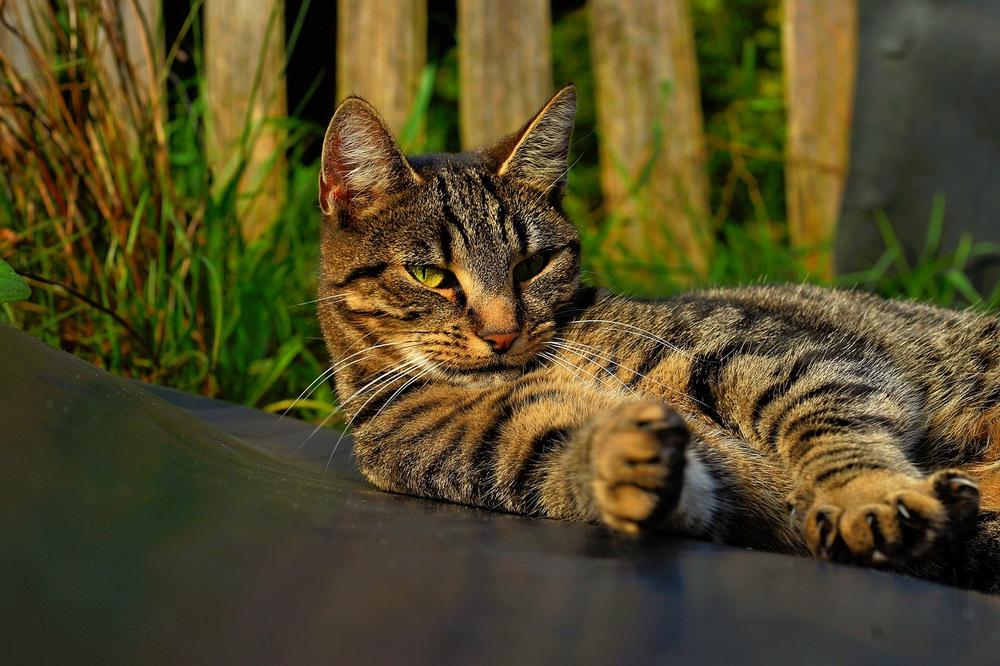
They don't play around.
Their instinctual drive to reproduce takes over everything else.
Here's another mind-blowing fact:
Female cats may experience discomfort during mating due to barbs on the male cat's penis.
Ouch!
But nature works in mysterious ways.
So next time you witness female cats being rough with their male counterparts after mating, remember that it's all part of nature's plan.
Understanding this behavior helps us care for these marvelous creatures effectively.
Stay tuned for more captivating insights into the intriguing world of cats.
There's always something new to learn about our feline friends!
The Role of Hormones in Female Cat Aggression
During and after mating, hormonal fluctuations in female cats can result in heightened aggression.
These hormones are to blame for the intense behavior, including aggressive screaming, exhibited by female cats.
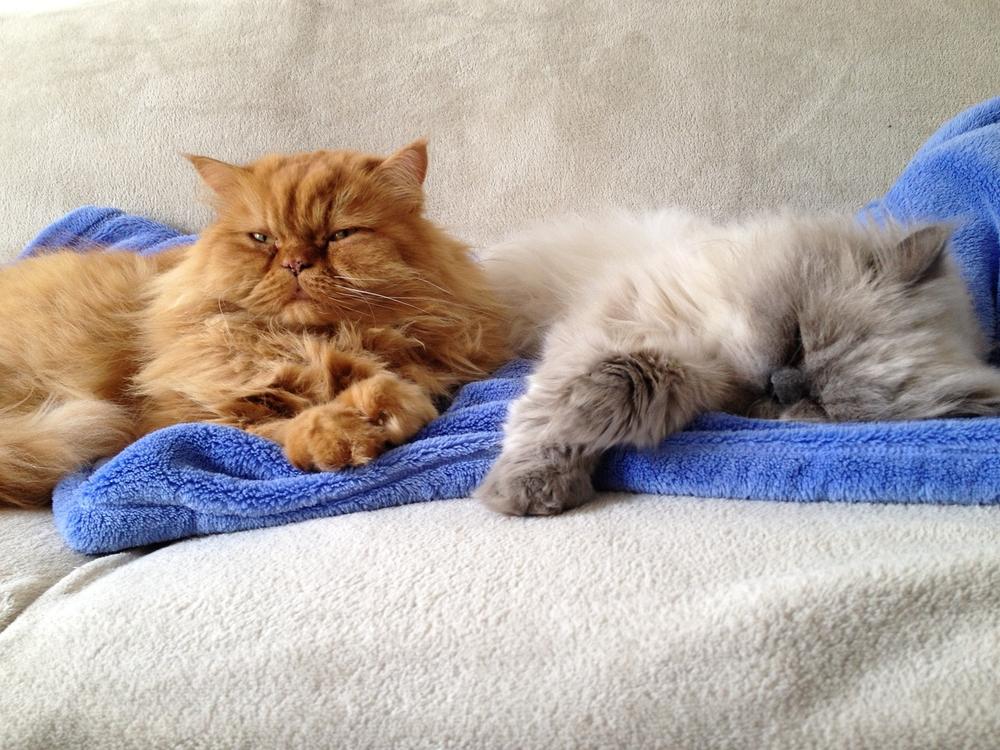
Removing the male's penis during copulation further exacerbates this change, triggering defensiveness and aggressive reactions.
Consequently, these hormonal fluctuations, coupled with the removal of the penis, have a notable impact on the cat's temperament, prompting her to display aggression towards the male.
It is important for you to be aware of these factors and their potential effects when dealing with your female cat.
Potential Health Issues Causing Aggression in Female Cats
Rule out medical conditions and discomfort
Before you start blaming your female cat for being aggressive, ensure she's not dealing with any underlying health issues or discomfort.
You don't want to jump to conclusions, right?
Potential health issues causing aggression
Female cats can sometimes get aggressive because they have certain health problems.
It's not just about wanting male attention, believe it or not.
After mating, females may attack males due to the pain caused by the barbed penis.
Ouch!
And if they're not interested in mating anymore, it can be really uncomfortable.
That discomfort might lead to aggression.
Did you know that female cats need to mate multiple times a day to stimulate ovulation?
They're quite busy!
All that mating can actually hurt and shock their bodies, which can make them aggressive. Sometimes, they even scream during the process.
Not fun!
Monitor for signs of pregnancy and seek veterinary advice
Keep an eye out for signs of pregnancy in your female cat.
Look for changes in nipple color and weight gain.
But here's the deal:
If you notice her being consistently aggressive, it's time to bring in the professionals.
Go see a vet and tell them what's been happening.
You have to keep an eye on your female cat's behavior and talk to a vet early on.
This way, you can make sure she stays healthy and so do any potential kittens.
Take good care of your furry friends!
Male Cat Behavior During and After Mating
Male cats have unique mating behaviors, including tiny spikes on their private parts that stimulate females and increase fertilization chances. Mating is quick and noisy, with both cats screaming passionately. After mating, females may become hostile due to discomfort caused by the male's special feature.
Male cat behavior during and after mating is pretty interesting, if you ask me.
When it comes to mating, male cats have some unique traits that are essential for making babies.
For starters, their private parts have these tiny spikes that get the female fired up and increase the chances of fertilization.
It's like nature's secret weapon.
During the act itself, things can get pretty wild. The whole thing is over in a flash, usually less than a minute. And boy, can it get noisy.
Both the male and female cats make loud screams to show how passionate they are.
But here's where it gets really intriguing.
After mating, the ladies sometimes turn hostile towards the males.
Can you blame them?
You see, the male's special feature can cause discomfort and lead to some post-coital rage.
Ouch!
But male cats aren't just dumb brutes.
Nope, they've got their own clever tricks during mating.
They bite the female's neck, which not only helps with mating but also stimulates ovulation.
Talk about multitasking.
And here's another fun fact:
The male cat's private part has spines made of keratin.
These spines assist with inducing ovulation and keeping things in place during intercourse.
It's like having built-in tools for successful mating.
Pretty impressive, right?
After all is said and done, you might catch your male cat doing some strange stuff.
Rolling around on the floor is a common sight.
It's believed that this behavior relieves tension and maybe even attracts new mates.
Whatever floats their boat!
And that wraps up today's article.
If you wish to read more of my useful articles, I recommend you check out some of these: Why Does My Cat Bite My Face, Can a Pregnant Cat Mate Again, Pregnant Cat Kneading, Why Does My Cat Slap Me With His Tail, and Do Cats Like Rain
Talk soon,
-Sarah Davis